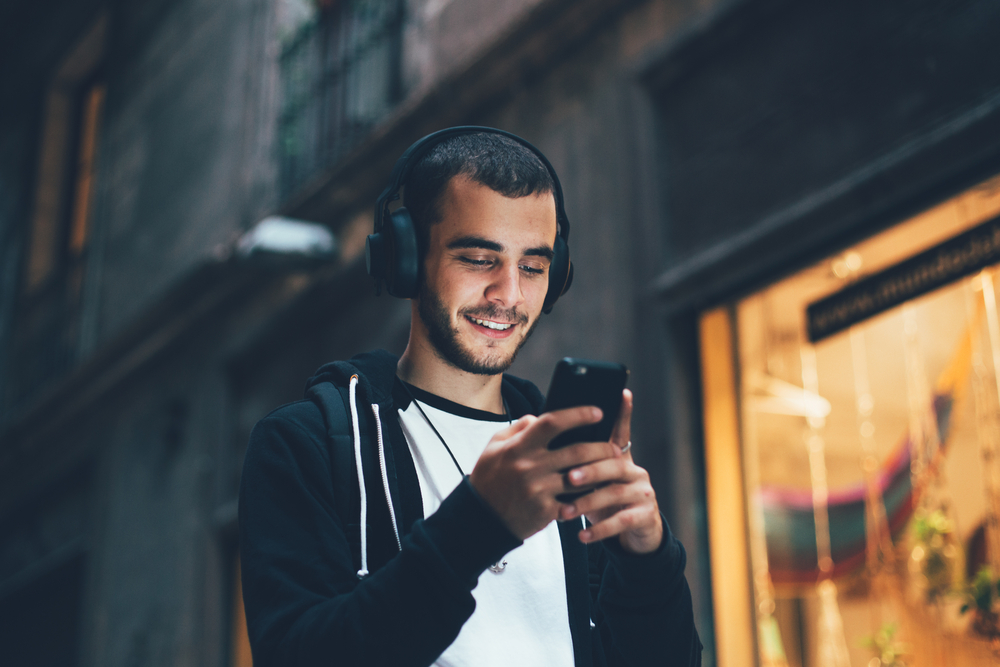
Say hello to James, a Say hello to music fan who perfectly incorporates Spotify into his work routine, switches over to Pandora during his workouts, and curates playlists for every instance imaginable, from cardio sessions to cooking and even gaming. His headphones are his constant partners, transforming his life into a completely soundtracked experience. However, while James gets solace and joy in the immersive world of music, the very thing he treasures could be silently damaging his priceless sense of hearing.
Concerning our ears, there are both safe and harmful ways to indulge in music. Sadly, many of us tend to incline towards the latter.
What is the link between prolonged exposure to music and hearing loss?
As time pass, loud noises can lead to deterioration of your hearing abilities. We’re used to regarding hearing loss as an issue related to growing old, but more and more research reveals that it’s really the build-up of noise-related damage that is the issue here and not anything intrinsic in the process of aging.
Younger people are more sensitive to noise-induced damage as their ears are still in the developmental phase. However, teenagers tend to ignore the potential dangers of excessive noise over time. A growing amount of young people are experiencing hearing loss due to frequent use of loud headphones.
Can one listen to music without any safety concerns?
Unregulated max volume is obviously the” dangerous” way to listen to music. But there is a safe(er) way to enjoy your tunes, and it usually includes turning the volume down. The general guidelines for safe volumes are:
- For Adults: No more than 40 hours of listening on a device, and maintain the volume below 80 dB.
- If you’re younger than 18, 40 hours is still fine, just be sure to keep the sound at a safe level, 75 decibels or lower.
Forty hours week translates into about five hours and forty minutes a day. Though it might appear excessive, the time can pass surprisingly fast. Despite this, the majority of individuals have a well-developed understanding of time management, a skill that is generally perfected during early childhood.
The more challenging part is keeping track of your volume. On the majority of smart devices, computers, and televisions, volume is not computed in decibels. It’s assessed on some arbitrary scale. Perhaps it’s 1-100. But maybe it’s 1-16. You might be unaware of the maximum volume range of your device or how close you are to reaching that limit.
How to effectively monitor your music volume
To address this issue, numerous free noise tracking apps are available for both iPhone and Android devices. These apps supply real-time insights into ambient noise levels, enabling users to calibrate their music volume accordingly.
Because of this, many audiologists suggest utilizing one of the numerous noise level tracking apps available at no cost. These apps– widely available for both iPhone and Android devices– will give you real-time readouts on the noises around you. In this way, you can monitor the decibel level of your music as it plays and make adjustments accordingly.
Comparing relative volumes: from garbage disposals to dishwasher
For instance, a volume level of 80 decibels is similar to the sound produced by a common garbage disposal or dishwasher – you can hear them, but they won’t blow your ears out. Recognizing this volume level is significant because it marks the point at which hearing loss becomes a real and tangible concern.
It’s important to exercise heightened caution when noise levels exceed this critical point. Consider reducing exposure to excessively loud music by enjoying select tracks at maximum volume instead of indulging in complete albums.
Prolonged exposure to loud sounds can lead to hearing problems, including ringing in the ears, or tinnitus, and potentially permanent damage to one’s hearing. By being mindful of when our ears are at risk, we allow ourselves to make educated decisions in order to encourage safer listening habits.
Make an appointment for a hearing evaluation
For better prioritization of your hearing health, it is recommended to contact a hearing specialist to book a thorough hearing test. Proactive steps like routine assessments can identify any potential problems early on, allowing for timely interventions and personalized suggestions to safeguard your vital sense of hearing.
